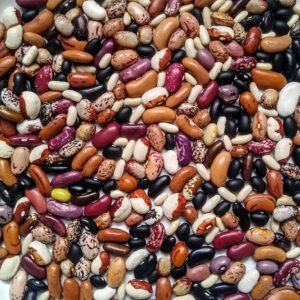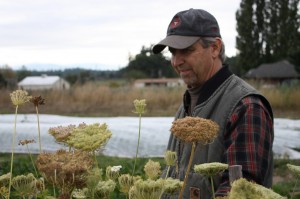
 As a geneticist and plant breeder who specializes in breeding crops that are adapted environmental stresses using classical plant breeding techniques, I was very heartened to read such a powerful argument for the effectiveness and success of using this kind of classical plant breeding in the Union of Concerned Scientists’ op-ed piece entitled “The cost-effective way to feed the world.”
As a geneticist and plant breeder who specializes in breeding crops that are adapted environmental stresses using classical plant breeding techniques, I was very heartened to read such a powerful argument for the effectiveness and success of using this kind of classical plant breeding in the Union of Concerned Scientists’ op-ed piece entitled “The cost-effective way to feed the world.”
In almost every case, the traits or breeding goals championed by scientists using genetic engineering can be met, often in the same period of time, through the use of classical breeding. And we can in fact do it with less money and much more sustainably. We can also target it for more specific regional agricultural needs because we don’t have huge overheads, expensive laboratories, and a need for patent attorneys. In contrast, the large transnational companies committed to genetic engineering make their varieties too expensive and often much too specialized for over half of the global farmers who farm at a subsistence level for local consumption. Yet these same companies control much of our seed supply.
I am frequently very disappointed when I hear media stories extolling the virtues of genetic engineering as if it is the only viable option and is the truly advanced form of plant breeding. It is as if classical plant breeding has dried up and blown away and is inconsequential in comparison to genetic engineering. Nothing could be further from the truth! Many of the plant breeders I know are doing some of the best plant breeding, bar none, that has been done since the rediscovery of Mendel’s laws in 1900. Pioneering breeding work is being done on breeding genetically diverse, resilient crop varieties that are able to adapt to the environmental challenges occurring in low-input, sustainable systems that many farmers are incorporating around the world. Best of all, these varieties are being bred in participatory partnerships with farmers who then become farmer breeders who continue adapting these crops to their environments and unique needs into the future. The seeds are not patented and there is no “lease agreement” as there is with genetically engineered crops. Most importantly, the farmers grow and share their seeds with their communities as farmers have done for over 10,000 years.
I strongly encourage everyone, especially those in the media, to read this compelling op-ed piece. I also encourage you to look into the revolution that is occurring with farmers in participatory plant breeding programs, such the Northern Organic Vegetable Improvement Collaborative. These partnerships are starting to make a tremendous impact across the world. And they promise to move us toward true agricultural sustainability.
John Navazio, Ph.D.
Senior Scientist with Organic Seed Alliance
WSU Extension Specialist in Organic Seed
